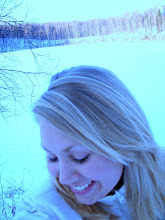Wednesday, January 28, 2009
Field Trip to Marshall Deel Vijf
When I was a boy of fourteen, my father was so ignorant I could hardly stand to have the old man around. But when I got to be twenty-one, I was astonished at how much the old man had learned in seven years. - Mark Twain
The sickness had finally passed. I was so grateful that I wasn't taken out by it for too long. Luckily also, that day was when Slaviq was coming to Clara's house. So at the usual 2:00pm, I headed over there to see the Star, as they would say. When I got there I hadn't really expected to meet many more people. To my surprise, I got to meet one of the loves of my life.
He was shorter than I, round, wore glasses and suspenders, spoke with a bit of a lisp due to his lack of teeth, was bald, and was born in 1934. His name was Alvin. If any of you have seen the movie The Holiday, he reminded me much of a Yup'ik version of the character Arthur. So obviously, it was love at first sight. Then when I found out that he was Clara's father I was all the more excited to get to know this infamous man. Like a child at her grandfather's knee, I listened to the stories of his life...
Alvin was born in Marshall in 1934. When Marshall was founded, much like many villages in rural Alaska, it was a gold mining town. "To find gold. That's why the white-man came, with his saloons, schools, hotels, and such. But when there was no more gold, they left." The town was voted "dry" (meaning that it is illegal to buy, sell, or drink alcohol) decades ago, so the saloons and hotels are no longer present. Other than the houses, there is the school, the Post Office, the two churches, and a pool hall.
When Alvin first went to school there were only nine kids in the whole school. At that time, almost none of the natives spoke or knew any English. But because Alaska was a US territory at the time, the only language to be taught was English run by the government. Their ability to conquer the language barrier still astounds me. Yup'ik, for the most part especially at that time, was not a written language and had no alphabet. Yup'ik has many sounds that English does not and is a soft palette language. So going from only speaking a very unique language to learning to read, write, and speak English (one of the most difficult languages to learn) is amazing. What made learning English even more difficult is that they would still only speak Yup'ik in the home, so they couldn't ask their parents for help in that regard.
Alvin said that when his younger brother came into his class and didn't speak any English, he didn't know how to ask to go to the bathroom. Because of this and the strictness of the teacher, his poor little brother wet his pants in class. Not wanting this embarrassment to happen again a few days later, Alvin tried explaining in a whisper how to say ask to leave in Yup'ik first and then in English during class. When his teacher caught him speaking Yup'ik, she grabbed her ruler and struck Alvin. She scolded him telling him that his language was forbidden. He told me that in that moment, he never wanted to speak Yup'ik again.
The a couple years later when he was hunting with his grandfather at their cabin in the woods, a white-man came asking him how much money their mink furs were. What Alvin told me I must understand was that their people did not have money or anything like it before the white-men came. So even when he was a little boy, it was a foreign thing to wrap his mind around when it was introduced. Because his grandfather didn't speak English, Alvin translated for him (at this point he was trilingual in English, Yup'ik, and "the language of the Northern People" as he put it).
Not knowing how to respond to the sale of the mink fur, the grandfather decided that they would take what he thought was best and the money that he had. Giving the grandfather lots of bills but a low amount, he thought that he had made a great deal. He received $40 for eight mink furs. Most unfortunately later when he heard that his brother sold one mink fur for $60, they both knew they had been cheated. Alvin then learned all the more that day how well he now not only needed to learn the language of the white-man but his ways and dealings as well.
Having heard him speak Yup'ik sitting at table, I asked him what brought him back to his native tongue with such a history of suppressing it. Firstly, he said that he married a woman who didn't speak any English, but that wasn't the main reason because she eventually learned English from the children learning it at school. What really brought him back to Yup'ik was the Native Seminary that Fr. Chuck founded and ran in the 1970's. Unfortunately it did not last very long and was not successful in coming out with any native priests, but it did produce a few deacons, which is what Alvin became. He saw that they needed a translator for those who spoke no or only broken English and with his talents and skills in language, he knew he was called to help out in this way.
This was initially a bit easier said than done. He had forgotten some of it and correct ways of saying things sometimes. So his wife came with him to the classes and helped him there and back at home. One day, they were talking about the afterlife, heaven, purgatory, hell, and all of that. Alvin started laughing as he told me that instead of saying something like, "you should all learn about hell", he ended up saying, "you all should go to hell". His wife immediately grabbed him and whispered what he had said and she helped him correct him. Joyful gratitude was in his eyes as he then said that if it weren't for his wife and the seminary, he would have left his native tongue behind altogether.
"Speaking of funny miscommunication," he began to tell the story of one of his daughter's first time in Anchorage. She went to go visit her brother who moved there when she was young. It was her first time ever out of Marshall. Having seen both towns myself, going to Anchorage would be a big shock. Obviously she had never seen a paved road, let alone a cross walk before. When they went to cross the street cars were coming and the sign under the traffic light was blinking the red hand "Do Not Walk". Perhaps she couldn't read or see what the words on the sign were, so she started running out in the middle of the road with all of the cars towards the traffic light. Her brother screaming for her to get off the road eventually makes it over safely as his seemingly crazy sister and asked her what she thought she was doing. She said, "well the hand looked like it was waving 'hi!' so I followed it".
Alvin elaborated stating how his son loved the city but his daughter hated it. The Yup'ik people are built to stay connected to each other; it's part of their culture and structure, the young learning from the family elders and carrying it on to their young. Such structure is hard to keep with modernity seeping its way into this family centered culture.
We did Slaviq until the late hours. You usually go out from 2pm-midnight, which is what I did my first day. I didn't stay out until midnight because I stayed at Clara's to help clean up and watch a home movie of Yup'ik dancing from ten years ago. Evidently the eighties hair styles even made their way up to Bush Alaska.
I loved listening to Alvin speak. He had such a sweetness to his voice and would giggle "hehehe" and then sigh out and extended "yeeah". His sweetness is hard to grasp in written form mostly because he told about such terrible wrongs done to him that were also so deep in symbolic value of the wrongs done to his people. I'm more used to hearing such stories with bitterness or even accusation towards me because I am light skinned. None of that was present in Alvin's tone, his voice, his facial expressions, or body language. In this amiable temperament I would learn later on that it came from forgiveness, forgiveness in many forms.
Subscribe to:
Post Comments (Atom)


1 comment:
The Holiday reference - YES!! 'I reaaaaalllyyy liiike it'
: )
- Alicia
Post a Comment